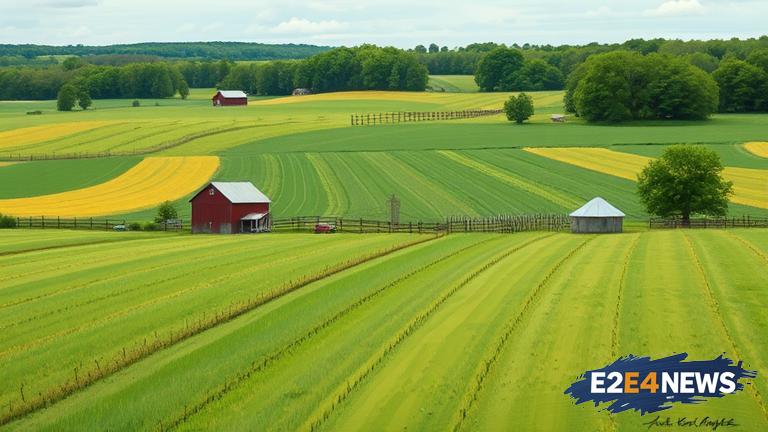The state of Indiana is taking significant steps to preserve its rich agricultural heritage by protecting Hoosier farmland from the threats of development and urbanization. With the help of lawmakers and farmers, the effort to safeguard the state’s fertile soil and natural resources is gaining momentum. The preservation of farmland is crucial not only for the state’s economy but also for the environment and food security. Indiana is renowned for its agricultural production, with the state ranking among the top producers of corn, soybeans, and wheat in the country. However, the increasing pressure from urbanization and development has led to the loss of arable land, prompting concerns about the long-term sustainability of the state’s agricultural industry. To address this issue, the Indiana General Assembly has introduced legislation aimed at protecting farmland and promoting sustainable agriculture practices. The bill proposes the creation of a farmland preservation program, which would provide incentives for farmers to conserve their land and prevent it from being sold for development. The program would also establish a framework for the state to purchase development rights from farmers, ensuring that the land remains in agricultural use. Farmers and agricultural organizations have expressed their support for the legislation, citing the importance of preserving the state’s agricultural heritage. The Indiana Farm Bureau, a leading advocacy group for farmers, has been instrumental in promoting the bill and raising awareness about the need to protect farmland. According to the organization, the preservation of farmland is essential for maintaining the state’s food security, as well as its economic viability. The loss of farmland to development not only affects the agricultural industry but also has a ripple effect on the state’s economy, leading to job losses and decreased economic activity. Furthermore, the preservation of farmland is critical for maintaining the state’s natural resources, including water and soil quality. The Indiana Department of Agriculture has also thrown its weight behind the effort, recognizing the importance of preserving the state’s agricultural land. The department has launched initiatives aimed at promoting sustainable agriculture practices and providing technical assistance to farmers. Additionally, the state has established programs to help farmers transition to more sustainable practices, such as organic farming and regenerative agriculture. These efforts have been welcomed by farmers and environmental groups, who see them as a step in the right direction towards preserving the state’s agricultural heritage. The preservation of Hoosier farmland is not only a state issue but also a national concern, as the loss of agricultural land has significant implications for the country’s food security and environmental sustainability. As the effort to protect Indiana’s farmland gains momentum, it is likely to serve as a model for other states to follow. The success of the preservation effort will depend on the continued support of lawmakers, farmers, and agricultural organizations, as well as the willingness of the state to invest in programs and initiatives that promote sustainable agriculture practices. In conclusion, the preservation of Hoosier farmland is a critical issue that requires immediate attention and action. With the help of lawmakers, farmers, and agricultural organizations, Indiana is taking significant steps towards protecting its agricultural heritage and ensuring the long-term sustainability of its agricultural industry. The state’s efforts to preserve farmland serve as a testament to the importance of preserving the nation’s agricultural resources and promoting sustainable agriculture practices. As the nation continues to grapple with the challenges of food security and environmental sustainability, the preservation of Hoosier farmland will play a critical role in addressing these issues. The future of Indiana’s agricultural industry depends on the success of the preservation effort, and it is essential that the state continues to prioritize the protection of its farmland. By doing so, Indiana can ensure the long-term viability of its agricultural industry, maintain its natural resources, and contribute to the nation’s food security and environmental sustainability.
